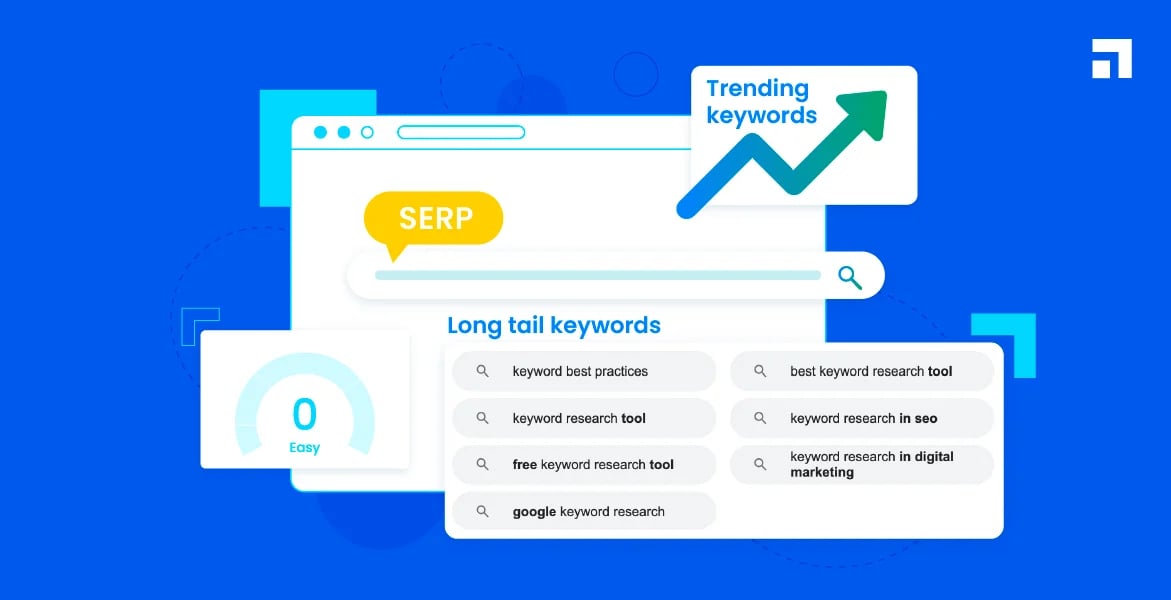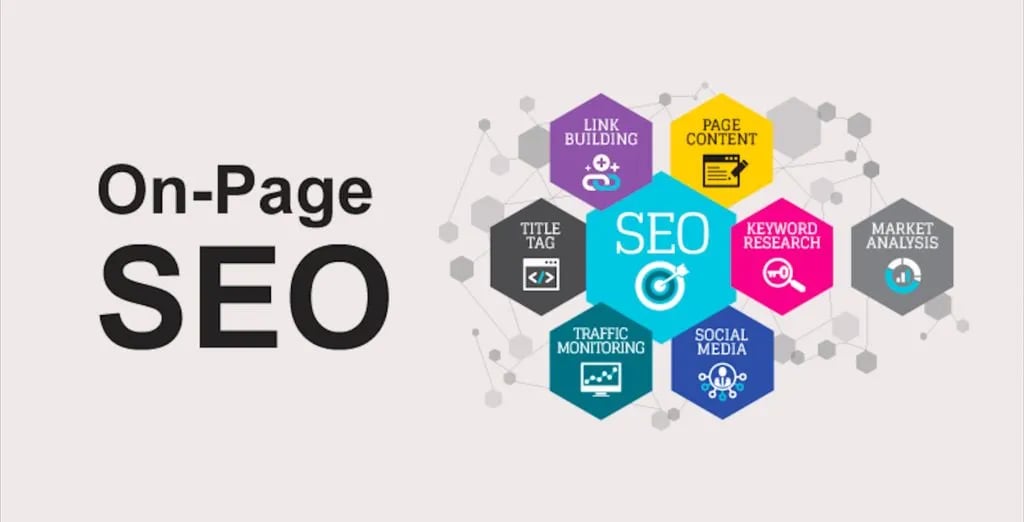
Keyword optimization is vital for enhancing your website’s visibility, but overusing those keywords, known as keyword stuffing, can negatively impact your rankings. To improve your business’s online presence and attract more customers and leads, it’s vital to maintain a natural flow in your content. This guide will help you understand how to balance keyword usage effectively. Additionally, to ensure your website content is both engaging and optimized for search engines like Google. At Mister Nguyen Agency, we integrate effective strategies in social media and design branding to maximize SEO results.
Understanding Keyword Stuffing

The practice of keyword stuffing occurs when you excessively use specific keywords in your website content, often in a way that disrupts the natural flow of your writing. This outdated method was once believed to boost rankings on search engines like Google, but it has since become ineffective and potentially harmful. For your business to thrive online, focusing on high-quality content that resonates with your customers and appeals to search engine algorithms is important.
Definition of Keyword Stuffing
Against the backdrop of effective SEO practices, keyword stuffing refers to the overuse of targeted keywords within your website’s content. This can manifest as unnatural repetitions within the text, meta tags, and even comment sections, ultimately compromising your website’s readability. Your aim should be to create valuable content for your customers while integrating keywords seamlessly.
Consequences of Keyword Stuffing
On the surface, keyword stuffing might seem like a shortcut to enhance rankings, but the risks far outweigh the potential rewards. Search engines like Google have become sophisticated in identifying this tactic, leading to penalties that can severely affect your website’s visibility. For your business, this means that instead of attracting leads, you may push away potential customers, damaging your brand’s reputation.
But the consequences of keyword stuffing extend beyond immediate penalties. If search engines detect that your website prioritizes keyword density over quality content, you might experience a decline in organic traffic and a loss of trust from your audience. Consequently, your business could struggle to generate leads through channels like social media, impacting your overall brand design and presence online. Focus on creating engaging, informative content that naturally incorporates keywords, as this will attract customers while maintaining your website’s credibility.
Best Practices for Keyword Usage

There’s a fine line between effective keyword usage and keyword stuffing that can negatively impact your website’s rankings. To optimize your business SEO, focus on strategically placing keywords in titles, headings, and throughout your content in a natural way. Prioritize the user experience, ensuring your text reads fluidly while still attracting your customers and generating leads for your brand.
Natural Language Integration
The best way to enhance your content is by integrating keywords seamlessly into natural language. Your goal should be to provide valuable information that engages your audience. This means creating sentences that flow naturally, allowing keywords to fit organically rather than forcing them in awkwardly.
Semantic Variations
At the heart of effective content strategy is the use of semantic variations. This approach not only broadens the scope of your keywords but also helps search engines understand the context of your content better. Instead of repeating the same keyword multiple times, consider using synonyms and related terms that can enhance your website’s relevance.
And utilizing semantic variations allows you to speak directly to your customers’ diverse queries, making your content resonate with their needs. For example, if your primary keyword is “digital marketing,” incorporate alternatives like “online advertising” or “internet promotion.” This not only diversifies your keyword strategy but also positions your business favorably in search results by appealing to a wider audience, ultimately leading to more leads for your Mister Nguyen Agency or any brand associated with your social media and design efforts.
Content Quality over Quantity

Not every piece of content has to be lengthy or stuffed with keywords to achieve high rankings. Instead, focus on delivering quality content that resonates with your audience. This approach not only enhances user engagement but also increases the likelihood of organic backlinks. For more information, refer to Keyword Stuffing and Why It Should Be Avoided. Aim for well-researched articles that reflect the real needs of your customers and enhance your business’s authority in its niche.
Focus on User Experience
By prioritizing user experience, you can create a more enjoyable atmosphere for your visitors. This means ensuring your website is easy to navigate, loads quickly, and presents information in a structured manner. A satisfying user experience on your site leads to higher engagement and increased chances of converting visitors into leads for your business.
Valuable and Engaging Content
Valuable content goes beyond surface-level information; it provides insights and solutions that your customers actively seek. This type of content positions your business as a credible resource in your industry and encourages audience interaction through comments and shares via social media.
Consequently, producing valuable and engaging content can significantly influence your website’s performance. When your customers find the information they want, they are more likely to spend time on your site, share it with others, and return for future visits. Engaging content boosts your authority, helps build a loyal audience, and ultimately drives more leads to your business. Leveraging the expertise of professionals like Mister Nguyen Agency can further enhance your content and design brand, ensuring it captures your audience’s attention effectively.
Tools and Techniques for SEO Optimization

Your success in SEO optimization hinges on utilizing the right tools and techniques that can enhance your website’s visibility in search engines. By effectively implementing these strategies, you can attract more customers and generate leads for your business. Leveraging available resources will ensure you avoid pitfalls such as keyword stuffing, leading to a more rewarding online presence.
Keyword Research Tools
By using keyword research tools such as Google Keyword Planner or Ahrefs, you can identify the most relevant keywords for your business. These tools provide insights into search volume and competition, enabling you to choose terms that will resonate with your customers. A comprehensive keyword strategy ensures that your website ranks higher and attracts targeted traffic, ultimately driving leads and conversions.
Analyzing Competitor Strategies
Strategies for analyzing competitor approaches can provide you with a deeper understanding of the market landscape. This involves examining their keyword usage, content structure, and backlinks to identify what works for their websites.
And leveraging these insights allows you to create an effective SEO strategy tailored to your business. By understanding what your competitors are doing on their websites and how they engage with their customers through social media, you can refine your own approach. Tools like SEMrush can help you assess competitor keywords and content effectiveness, guiding you in creating a unique design brand that stands out while maintaining ethical SEO practices.
Monitoring and Adjusting Your Strategy
Once again, it’s vital for you to monitor and adjust your SEO strategy regularly. This ensures that you are maintaining optimal performance and staying aligned with current best practices. By analyzing your website’s performance, you can identify areas where keyword usage may need refinement, helping you create content that naturally engages your business’s customers and generates more leads.
Regular Performance Audits
On a consistent basis, you should conduct performance audits to assess the effectiveness of your SEO efforts. These audits allow you to evaluate key metrics like organic traffic, bounce rates, and conversion rates. Understanding these figures helps you pinpoint how well your content resonates with your audience and whether your keywords are effectively driving leads.
Adapting to Algorithm Changes
By keeping an eye on algorithm updates from search engines, you can adapt your strategy to maintain your rankings. Search engines like Google frequently tweak their algorithms, and such adjustments can impact how your website is indexed and ranked. Staying informed allows you to modify your content and keyword strategies to better meet the expectations set by these changes.
It’s imperative to stay updated with search engine algorithm changes, as these can significantly affect your website’s visibility. This may involve revisiting your keyword strategy and ensuring that your content remains relevant and valuable to your audience. Engaging with resources like the Mister Nguyen Agency or industry blogs can provide insights on emerging trends in SEO. By proactively adjusting your strategy, you can safeguard your business against any adverse effects, ensuring your customers can easily find you online and helping you generate quality leads through your design brand.
Conclusion
The best way to improve your website’s rankings on Google is by avoiding keyword stuffing that can alienate your customers and hinder your business growth. Focus on crafting quality content that naturally integrates keywords, enhancing user experience while attracting leads. By prioritizing clear messaging and relevant topics, you can effectively engage your audience. Seeking guidance from experts like Mister Nguyen Agency for social media strategies and design branding can further elevate your online presence, ensuring your business stands out for the right reasons.











